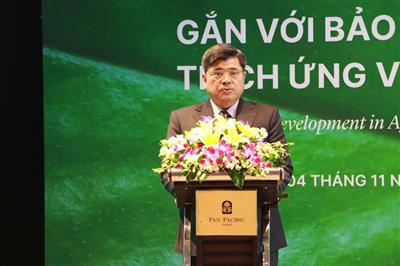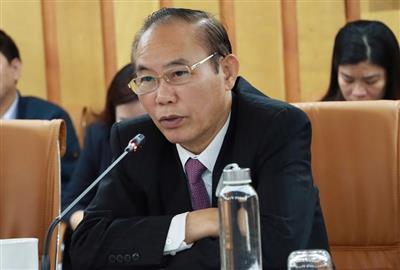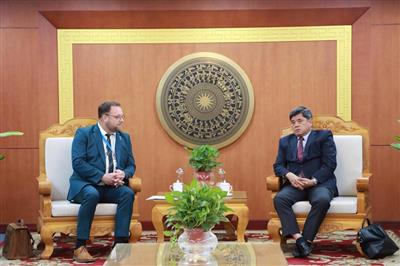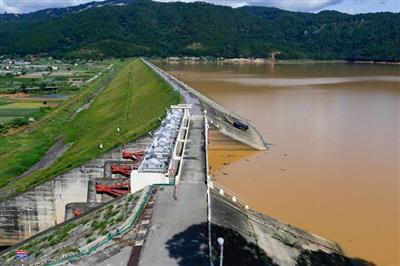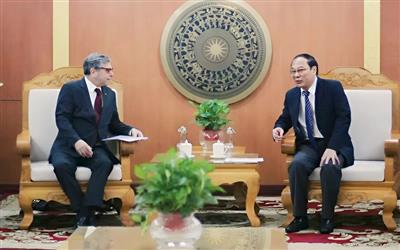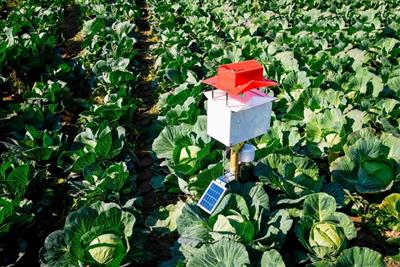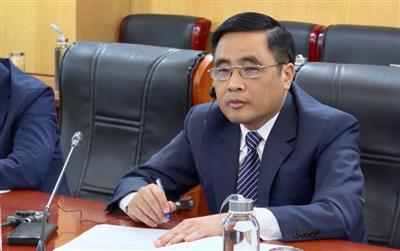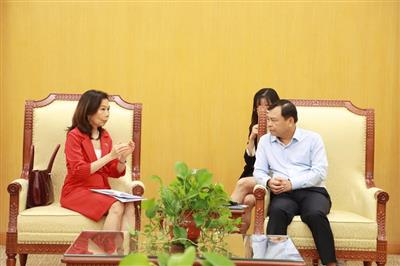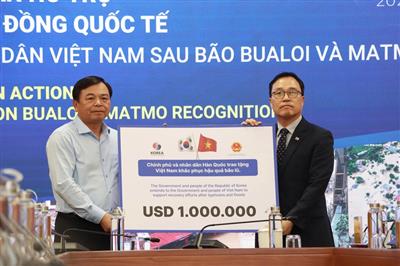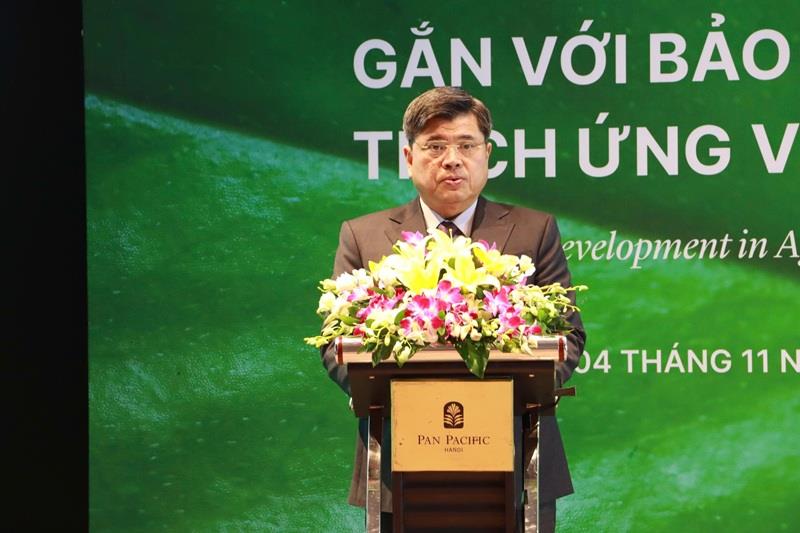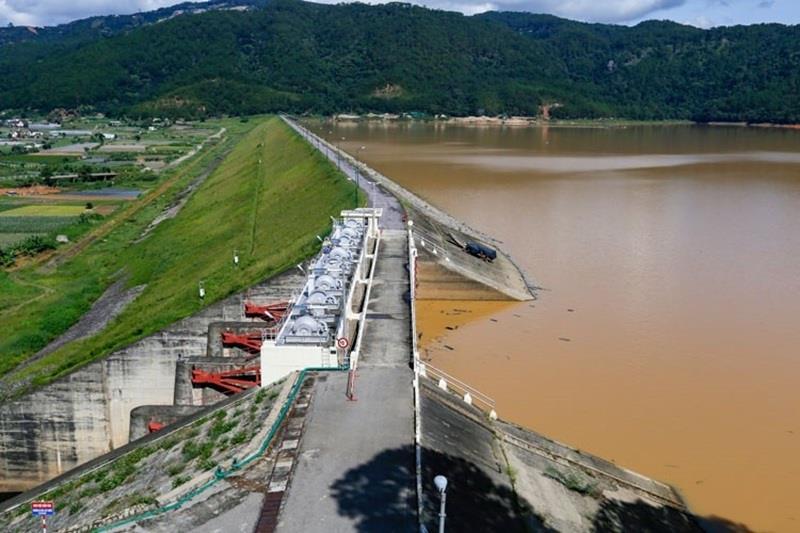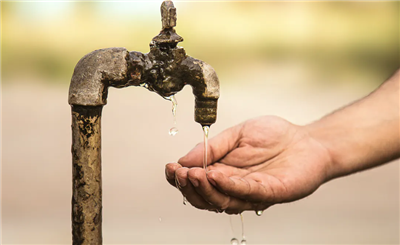
Vietnam - Indonesia strengthen agricultural and environmental cooperation towards sustainable development
27/08/2025TN&MTOn August 27 in Hanoi, Deputy Minister of Agriculture and Environment Hoang Trung received a courtesy visit from the delegation of the House of Representatives of the Republic of Indonesia, led by Major General TNI., MAR. (Ret.) Sturman Panjaitan, Member of Parliament and Vice Chairman of the Committee. The meeting took place at a time when Vietnam-Indonesia relations are entering a new phase of development in 2025, underpinned by the Comprehensive Strategic Partnership and the milestone of the 70th anniversary of diplomatic ties. Both sides shared practical experiences and discussed key directions for cooperation in agriculture, environment, and sustainable development.
Agricultural policies linked to value chains and farmers’ benefits
During the meeting, Deputy Minister Hoang Trung underlined the critical role of agriculture and environment in Vietnam’s economy, contributing significantly to GDP and serving as a “pillar” for social stability. At present, the Ministry of Agriculture and Environment administers 17 sectoral laws covering agriculture, forestry, fisheries, irrigation, and environment, providing a comprehensive legal framework for sustainable development.

Deputy Minister of Agriculture and Environment Hoang Trung meets with an Indonesian parliamentary delegation led by Major General (Ret.) Sturman Panjaitan to discuss cooperation in agriculture, environment, and sustainable development
According to the Deputy Minister, Vietnam’s strategic orientation is to develop agriculture along the value chain, from production, processing, and distribution to export. This approach ensures both market forecasting and sustainable resource use—land, water, forests, while strengthening climate resilience. Each strategic commodity is selected based on natural advantages such as climate and soil conditions, while also prioritizing farmers’ livelihoods and social welfare.
Vietnam requires all strategic products to meet three mandatory criteria: high economic value, strong market potential, and sustainability. On this basis, the government issues policies on resource support, builds national branding, and enables enterprises and localities to grow. These lessons, in particular, drew strong interest from the Indonesian side.
Major General Sturman Panjaitan expressed his appreciation for Vietnam’s tropical fruit varieties and ongoing sustainable development policies. He stressed that Vietnam’s experience in strategic planning, legal frameworks, and market development would be valuable reference for the Indonesian House of Representatives in drafting legislation on agricultural trade, particularly for products such as coconut, cocoa, tea, coffee, and tobacco.
Both sides also highlighted the robust growth in bilateral trade: two-way trade reached USD 16.7 billion in 2024, double the USD 8 billion recorded in 2020. This achievement provides a strong foundation to expand agricultural and environmental cooperation, with the target of USD 18–20 billion by 2028.
People at the center, businesses as the driving force of agricultural development
The Indonesian delegation showed particular interest in Vietnam’s tripartite cooperation mechanism among the state, enterprises, and farmers. Major General Sturman Panjaitan noted that despite its limited agricultural land, Vietnam has risen to become one of the world’s top exporters of rice, coffee, and cashew nuts. This success demonstrates the close integration between farmers and enterprises across the value chain.

Deputy Minister Hoang Trung stressed that Vietnam’s cooperation model is built on voluntariness and mutual benefit, with the state providing support and enterprises linking with farmers to form sustainable value chains
In response, Deputy Minister Hoang Trung emphasized that Vietnam’s cooperation model is based on voluntariness and mutual benefit. The state plays an enabling role: providing credit support, agricultural extension services, trade promotion, and removing market barriers. Farmers are empowered to produce and can sell their products either through traders or directly to enterprises. Meanwhile, enterprises not only guarantee product purchases but also supply seeds, technology, and credit, thereby building sustainable value chains.
The results speak for themselves: in 2024, Vietnam exported 9 million tons of rice, 1.3 million tons of coffee, and large volumes of fruit to demanding markets. Strategic commodities such as rice, coffee, and cashew nuts all meet international standards, strengthening Vietnam’s leading export position.
Another area of interest for Indonesia was the use of organic fertilizers and agricultural by-products. Deputy Minister Hoang Trung noted that Vietnam produces about 20.9 million tons of fertilizer annually, of which 3 million tons are organic. The Ministry is strongly encouraging farmers to shift towards organic fertilizers to replace chemical inputs, reducing costs while contributing to environmental protection.
The Indonesian side expressed keen interest in learning from Vietnam’s experience in deep processing and improving product quality standards. With millions of hectares of oil palm, Indonesia is working to optimize policies from production to processing in order to balance benefits between farmers and enterprises. Major General Sturman Panjaitan affirmed that sharing experiences with Vietnam would help Indonesia enhance quality and improve the international competitiveness of its key commodities such as cocoa and coffee.
Agricultural and environmental cooperation under the Comprehensive Strategic Partnership
Recent high-level diplomatic activities and policy exchanges between Vietnam and Indonesia have demonstrated increasing ties. In March this year, during a State visit to Indonesia, General Secretary To Lam held important meetings with leaders of major corporations such as Ciputra, Gojek, PT Alamtri Resources, Sungai Budi, and the Indonesian Chamber of Commerce and Industry (KADIN). These engagements opened avenues for cooperation in green urban development, renewable energy, high-tech agriculture, digital transformation, and Halal food development.

The Indonesian delegation expressed interest in Vietnam’s experience in deep processing and quality standards, with Major General Sturman Panjaitan noting that such exchanges would help Indonesia enhance cocoa and coffee competitiveness
Subsequently, on April 16 in Hanoi, the Ministry of Agriculture and Environment received Indonesian Minister of National Development Planning Rachmat Pambudy. Both sides held in-depth discussions on the potential signing of a Memorandum of Understanding on rice cooperation, enhancing connectivity in Halal food trade, as well as cooperation in fisheries, environment, and sustainable development. These exchanges added an important foundation for shifting bilateral relations from traditional cooperation to deeper, long-term strategic alignment.
The August 27 meeting with the Indonesian House of Representatives further underscored how parliamentary and ministerial cooperation can complement each other, creating comprehensive linkages. These are not merely ceremonial activities, but practical steps aimed at advancing concrete cooperation in agriculture, environment, and sustainable development.
Building on the Comprehensive Strategic Partnership, Vietnam–Indonesia cooperation is increasingly balanced, extending from state-level engagement to enterprises and farmers. This process makes an important contribution to regional stability, food security, climate change response, and the pursuit of shared prosperity.
Minh Thao




